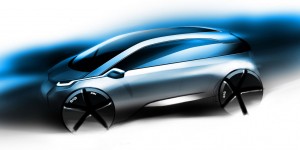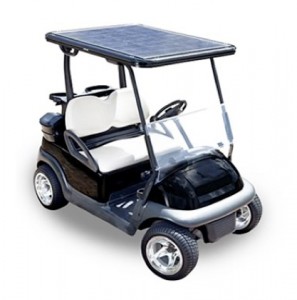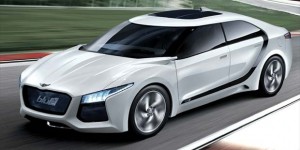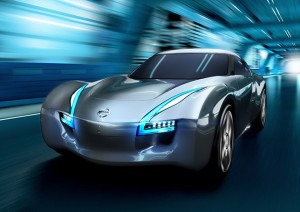It’s time to meet 21st century realities with 21st century rail
 By Ray LaHood – Director of Transportation - I went to Capitol Hill this morning because I wanted to share with the House Transportation and Infrastructure Committee the good news about American high-speed rail. Since 1991, Presidents and Congressmen–Republicans as well as Democrats–have had an American high-speed rail network on their agenda, in good economic times and bad. What’s changed today is that we have a President and Vice President who are backing up their words with actions. We’re not just writing reports and filing them away; we’re hiring workers, we’re laying track, and we’re building stations. And it’s a good thing, too. Because, by 2050, America will be home to 100 million additional people, and our highways and airports simply won’t be able to handle that growth. And if we can’t handle that growth, our economy will be stalled by chokepoints and bottlenecks across the country.Read the full article: It’s time to meet 21st century realities
with 21st century rail
By Ray LaHood – Director of Transportation - I went to Capitol Hill this morning because I wanted to share with the House Transportation and Infrastructure Committee the good news about American high-speed rail. Since 1991, Presidents and Congressmen–Republicans as well as Democrats–have had an American high-speed rail network on their agenda, in good economic times and bad. What’s changed today is that we have a President and Vice President who are backing up their words with actions. We’re not just writing reports and filing them away; we’re hiring workers, we’re laying track, and we’re building stations. And it’s a good thing, too. Because, by 2050, America will be home to 100 million additional people, and our highways and airports simply won’t be able to handle that growth. And if we can’t handle that growth, our economy will be stalled by chokepoints and bottlenecks across the country.Read the full article: It’s time to meet 21st century realities
with 21st century rail
AAA Joins the Electric Drive Transportation Association
 The Electric Drive Transportation Association (EDTA) — the preeminent industry association dedicated to advancing electric drive as a core technology on the road to sustainable mobility — today announced that AAA has joined the Association. “With more than 52 million members, AAA is dedicated to providing industry leading information and support for the sustainable mobility options offered by hybrid, plug-in, fuel cell and battery electric vehicles, and we are proud to welcome AAA into the Electric Drive Transportation Association,” said Brian Wynne, President of EDTA. “AAA’s more than a century of experience engaging motorists will support the mission of our GoElectricDrive initiative to educate consumers, policymakers and key industry sectors on the benefits of electric vehicles. Full Article: AAA Joins the Electric Drive Transportation Association
The Electric Drive Transportation Association (EDTA) — the preeminent industry association dedicated to advancing electric drive as a core technology on the road to sustainable mobility — today announced that AAA has joined the Association. “With more than 52 million members, AAA is dedicated to providing industry leading information and support for the sustainable mobility options offered by hybrid, plug-in, fuel cell and battery electric vehicles, and we are proud to welcome AAA into the Electric Drive Transportation Association,” said Brian Wynne, President of EDTA. “AAA’s more than a century of experience engaging motorists will support the mission of our GoElectricDrive initiative to educate consumers, policymakers and key industry sectors on the benefits of electric vehicles. Full Article: AAA Joins the Electric Drive Transportation Association
The EV-Hater’s Guide to Hating Electric Cars
 By Steve Harvey – Electric vehicles are a sales flop and a dismal failure. Or so I was told this week—and last week and the week before—by respected newspapers. The “sales flop” part surprised me, since I am one of thousands of people waiting in line to buy my electric vehicle. I made my reservation for the car in April 2010, and am hoping for delivery by April 2012. If a car has a two-year wait list, is it a sales flop? Nevermind. The latest article’s author, like the others, conveniently left out the part about the long waiting list. And he left out a few other things as well. Maybe these folks are just too busy to check their facts. Or, maybe something else is going on. To a true EV-hater, the image of an electric car will always be the small, underpowered battery-powered vehicles from the 1970s. Preferably, the EV will be depicted on a flatbed truck, getting towed after running out of electricity.
By Steve Harvey – Electric vehicles are a sales flop and a dismal failure. Or so I was told this week—and last week and the week before—by respected newspapers. The “sales flop” part surprised me, since I am one of thousands of people waiting in line to buy my electric vehicle. I made my reservation for the car in April 2010, and am hoping for delivery by April 2012. If a car has a two-year wait list, is it a sales flop? Nevermind. The latest article’s author, like the others, conveniently left out the part about the long waiting list. And he left out a few other things as well. Maybe these folks are just too busy to check their facts. Or, maybe something else is going on. To a true EV-hater, the image of an electric car will always be the small, underpowered battery-powered vehicles from the 1970s. Preferably, the EV will be depicted on a flatbed truck, getting towed after running out of electricity.
Whatever the reason, the media often has an irrational disdain for electric vehicles (EVs). And a similar disdain is common among the general population too. The same EV-hating arguments are repeated ad nauseum in the media. After analyzing the key arguments of the EV haters, I have compiled what I believe is the first-ever EV-Hater’s Guide to Hating Electric Cars. If you really hate EVs—and you know who you are—then this Top 10 guide is especially for you. First, commit these truthy facts to memory: 1. EVs are totally overpriced. Point to the $109,000 Tesla Roadster [2] supercar as your only example. If you’re forced to compare prices with a Nissan LEAF [3]—in the mid- to high-20s after tax breaks—then perform a lengthy comparative cost analysis contrasting the LEAF to a $12,000 gasoline car to prove that the EV is more expensive. 2. Plugging them in will crash the grid. Forget that most electric car charging will occur during off-peak times.
And forget that the EV charger on the Nissan LEAF draws a modest 3.3 kilowatts. Just for fun, make the grid-crashing claim while your 4.4-kilowatt clothes dryer is running. 3. EVs are worse for the environment than a gasoline car. It’s not true, but if you say that often enough, people will believe it. Then roll your eyes and point out that producing electricity for an EV emits pollution too. And what about those batteries? Imply that they’re made out of poison that will pile up in our landfills. Depending on who your audience is, you might also mention that carbon dioxide is a fictional gas invented by the liberal elite. 4. EVs are just a status symbol for eco-snobs.
Remember, the EV is always a symbol for something that you hate. It’s not a car. 5. EVs are a sales flop. Never mention the huge unmet demand and the production bottleneck. Never mention the long waiting lists. Small sales numbers in the first few months of introduction prove that no one wants to buy one. Period. 6. Shout it: Limited range! This is the one gripe about electric cars that is actually true, so get all the mileage out of it you can. Associate limited range with the word “anxiety.” Say it again: “Anxiety.” See how delightfully negative that word makes you feel. And if an EV-lover mentions that gasoline cars can run out of fuel too, just look at them like they’re crazy, and then change the subject. It doesn’t matter how much electric horsepower the latest electric cars offer, ALL EVs are golf carts. Now, swear (on a stack of Hummer owner manuals) that you’ll never talk about these things: 7. NEVER mention fuel costs. Just don’t go there. A typical gasoline car will burn about $20,000 worth of gasoline over it’s 128,500 mile lifetime, while an EV will run the same distance for less than $4,000 of electricity. If people start mentally adding that extra $16,000 to the cost of their gasoline car, it’s game over. 8. Never mention timing belts. I just spent $1,500 getting one replaced in my gasoline car.
Of course, an EV owner will never have to do that. Similarly, oil changes and other costly maintenance are a non-issue with an EV. Keep that quiet, okay? 9. Never mention the luxury ride quality. People spend tens of thousands of dollars extra for gasoline cars that have a smooth and quiet ride. An even smoother and quieter ride is standard with an EV. Avoid mentioning that, and remember to mutter something about golf carts. 10. Never mention the future. The cost of an EV will go down by thousands in the years ahead as production costs fall—especially the cost of the battery. Along with the cheaper price will come longer range, faster recharging, more choice, better performance, and other improvements. EVs are price-competitive already. In a few years, EVs will be a distinctly better value than gasoline cars. Shhh. Just keep saying that they’re too expensive. There you have it, EV haters. Please don’t bother to take an electric car out for a spin to see for yourself, or to ask an EV owner about the real-world experience of driving an electric car. Add more reasons why EVs suck in the comments below. And spread the word. Stay on the Cutting Edge of Green Car Technology! Source: PluginCars.com
BMW Buys Leasing Firm To Launch Its i Series Electric Cars
 By Kurt Ernst: Contributor – BMW has purchased the car-leasing unit of Dutch banking giant ING for a reported $1 billion. The move enables BMW to expand its fleet operations, but more importantly, it gives the automaker the ability to aggressively promote the launch of its i Series electric cars via leasing options. Industry analyst Maryann Keller, of Maryann Keller and Associates, feels the move will help address consumer concerns over the residual value of electric cars. “Why buy a first-generation electric car when… the technology is likely to be obsolete in three or four years?” Keller asked. “It’s easier to get people to make a monthly payment.” Growing their base of fleet leases will also help BMW promote early adoption of their electric cars, a lesson learned with its ActiveE Electric Car.
By Kurt Ernst: Contributor – BMW has purchased the car-leasing unit of Dutch banking giant ING for a reported $1 billion. The move enables BMW to expand its fleet operations, but more importantly, it gives the automaker the ability to aggressively promote the launch of its i Series electric cars via leasing options. Industry analyst Maryann Keller, of Maryann Keller and Associates, feels the move will help address consumer concerns over the residual value of electric cars. “Why buy a first-generation electric car when… the technology is likely to be obsolete in three or four years?” Keller asked. “It’s easier to get people to make a monthly payment.” Growing their base of fleet leases will also help BMW promote early adoption of their electric cars, a lesson learned with its ActiveE Electric Car.
Automakers with leasing operations can subsidize the cost of electric vehicles, making them more attractive to fleet customers. That may be a moot point, since European companies with vehicle fleets are under increasing pressure to reduce carbon monoxide emissions. Even if electric vehicles aren’t suitable for all applications, it’s likely that they can be used to replace a significant number of gasoline or diesel powered vehicles on leases in the EU today. BMW is hardly the first automaker to consider leasing or other direct-distribution schemes. Smart launched a car-sharing scheme called Car2Go in Germany in 2008, then expanded it to Austin, Texas, the next year. And BMW itself said this spring that it would pilot its own car-sharing scheme in Germany. Executives hinted at the time that it could well be expanded to the United States later on. [The Detroit News]
Mobile chargers set to help stranded EV owners
 The AAA, America’s largest roadside assistance organiaation, is to roll out a fleet of mobile charging units to help stranded electric vehicle owners. The motor club recently announced that it has completed a fully-functional electric vehicle charging unit, which will be deployed to its roadside assistance operations. The unit is set to be fully unveiled in July and will be in action on US roads later in the summer, a spokesperson for the AAA said. As a level two and three charging unit, it will be capable of “fast-charging” electric cars quicker than a normal household outlet – level two charging can fully charge a battery in 4-6 hours but level three chargers can fill a battery to 80 percent in less than 20 minutes, although it’s not compatible with all types of vehicle.
The AAA, America’s largest roadside assistance organiaation, is to roll out a fleet of mobile charging units to help stranded electric vehicle owners. The motor club recently announced that it has completed a fully-functional electric vehicle charging unit, which will be deployed to its roadside assistance operations. The unit is set to be fully unveiled in July and will be in action on US roads later in the summer, a spokesperson for the AAA said. As a level two and three charging unit, it will be capable of “fast-charging” electric cars quicker than a normal household outlet – level two charging can fully charge a battery in 4-6 hours but level three chargers can fill a battery to 80 percent in less than 20 minutes, although it’s not compatible with all types of vehicle.
The units will be rolled out to California, Oregon, Washington, Florida, Tennessee and Georgia, according to reports. Running out of battery in an electric vehicle is complicated by the fact that they cannot be “towed” in the traditional sense – theoretically, turning the wheels independently could feed power back into the car (recently proved by a Dutch experiment which proved popular on YouTube). Instead, electric vehicles must be recovered by a truck, adding expense and making running out of gas considerably more inconvenient. AAA’s move follows an announcement earlier this month by Nissan and the Japan Automobile Federation (JAF) which confirmed that the parties were working together to test a mobile charging roadside assistance vehicle. At the time, Nissan said that the new charger would help to build confidence in mobile EV use.
SolarCarts Announces Sizzling Summer Special on Golf Cart Solar Roofs
 Coconut Creek-based SolarCarts, a designer and manufacturer of solar energy retrofits for golf carts, announces the launch of The Sun Eagle™, a solar roof that transforms electric golf carts into solar-powered hybrid carts. In conjunction with this industry-changing launch, SolarCarts is offering a summer special, just for Floridians that will price their solar roof at the lowest price the golf industry might ever see. SolarCarts’ Summer Special undercuts their competition by nearly 75%; as they are offering their state of the art, chic solar top for just $999. The six-weeklong summer event will be exclusive to the first one hundred orders and installation must take place within the state of Florida. SolarCarts touts The Sun Eagle as a solar energy solution that enables consumers to extend the range of their carts, prolong the lifetime of their costly cart batteries, all while reducing their energy costs.
Coconut Creek-based SolarCarts, a designer and manufacturer of solar energy retrofits for golf carts, announces the launch of The Sun Eagle™, a solar roof that transforms electric golf carts into solar-powered hybrid carts. In conjunction with this industry-changing launch, SolarCarts is offering a summer special, just for Floridians that will price their solar roof at the lowest price the golf industry might ever see. SolarCarts’ Summer Special undercuts their competition by nearly 75%; as they are offering their state of the art, chic solar top for just $999. The six-weeklong summer event will be exclusive to the first one hundred orders and installation must take place within the state of Florida. SolarCarts touts The Sun Eagle as a solar energy solution that enables consumers to extend the range of their carts, prolong the lifetime of their costly cart batteries, all while reducing their energy costs.
Jon LoBello, the Executive Vice President of Solar Carts adds, “There has never been a better time to adopt solar roofs with prices so low coupled with the fact that the entire golf industry is shifting to greener solutions.” He explains their decision to launch their new product with such a low pricing strategy, by stating, “We constructed this offer for golf cart owners who truly want to be green, but, until now, could not yet afford this type of solar technology. The summer special enables anyone with a green mindset or a sheer love for the environment an opportunity to get in on the ground floor and be a part of something special and impactful for the golf cart industry.”
The summer special begins June 1st and extends through July 15th. The solar retrofits currently are compatible with most golf carts thanks to a proprietary universal conversion kit. For more information, please visit www.solarcarts.com Solar Carts, LLC is a technology driven company that provides golf cart owners with reliable, highly efficient solar retrofits for electric golf carts. Comprised of successful business entrepreneurs, top-notch engineers and solar gurus from all over the world, our group has united to create the patent-pending Sun Eagle™. As alternative energy becomes more relevant to today’s world, SolarCarts is dedicated to providing golf cart owners and operators with a viable, affordable solar charging system. Our long-lasting, eco-friendly products will provide sustainable solar energy for years to come – and can be transferred from one cart to another as you replace your carts.
2011 Seoul Motor Show: Hyundai Blue2 Concept
 Hyundai has unveiled the all-new Hyundai Blue2 Concept, the company’s latest addition to its ‘Blue Drive’ sub eco-brand, at the 2011 Seoul Motor Show. The Hyundai Blue2 (Read as “Blue square”), Hyundai’s first sedan-style Fuel Cell Electric Vehicle (FCEV), previews the design of the South Korean automaker’s next-generation sedan models and also picks up the latest in hydrogen fuel cell technology. The Hyundai Blue2 is powered by a fuel cell electric system that delivers a stack power of 90kW (120 hp) and fuel economy of 34.9km/ℓ (2.86 l/100km or 82.2 mpg US). The Blue2 is materialized in a sporty and luxurious style, a combination of futuristic, flowing designs and eco-friendly features. The Blue2 is equipped with low-resistance tires and alloy wheels which are designed to improve aerodynamic performance, while the car’s interior design encompasses a futuristic look by using eco-friendly new materials.
Hyundai has unveiled the all-new Hyundai Blue2 Concept, the company’s latest addition to its ‘Blue Drive’ sub eco-brand, at the 2011 Seoul Motor Show. The Hyundai Blue2 (Read as “Blue square”), Hyundai’s first sedan-style Fuel Cell Electric Vehicle (FCEV), previews the design of the South Korean automaker’s next-generation sedan models and also picks up the latest in hydrogen fuel cell technology. The Hyundai Blue2 is powered by a fuel cell electric system that delivers a stack power of 90kW (120 hp) and fuel economy of 34.9km/ℓ (2.86 l/100km or 82.2 mpg US). The Blue2 is materialized in a sporty and luxurious style, a combination of futuristic, flowing designs and eco-friendly features. The Blue2 is equipped with low-resistance tires and alloy wheels which are designed to improve aerodynamic performance, while the car’s interior design encompasses a futuristic look by using eco-friendly new materials.
The Blue2’s condition is visible via unique and futuristic images on the exterior of the car through outside LED screen panels, which are located on both the front and rear of the car. Blue2 also features a welcome system which recognizes the driver, while an automatic opening door system enhances the driver’s convenience. Conventional side mirrors are replaced by side cameras and a roof camera, offering a state-of-the-art driving environment. The exterior designs flow inside the vehicle, with asymmetrically-designed dashboards and doors to optimize a driver’s convenience and add emotional value. Wider seats enable people to get in and out of the vehicle more comfortably. Hyundai combined the cluster and center fascia, applying an advanced Transparent Organic Light Emitting Diode (TOLED) monitor and ultra-light tempered glass, called Gorilla Glass, providing more accurate and vivid graphic information. The infotainment system is operated by a Motion Sensor Moustick, a haptic wheel and motion sensor that respond to the driver’s touch and hand movements, respectively, giving drivers a new experience.
California and New York to Be the Largest for Electric Vehicles
 The growth of the plug-in electric vehicle (PEV) market in the United States will require significant preparation by industry players who are working on setting up recharging station networks, developing product and production plans, and allocating precious marketing resources. Adoption of PEVs will vary significantly by geography, and as state and local government officials as well as utility managers plan for the arrival of grid-connected vehicles, they need to understand where those vehicles are going to be located and what the impact could be. According to a new report from Pike Research, the metropolitan areas with the largest number of PEVs on the road in the next several years will include New York, Los Angeles, and San Francisco.
The growth of the plug-in electric vehicle (PEV) market in the United States will require significant preparation by industry players who are working on setting up recharging station networks, developing product and production plans, and allocating precious marketing resources. Adoption of PEVs will vary significantly by geography, and as state and local government officials as well as utility managers plan for the arrival of grid-connected vehicles, they need to understand where those vehicles are going to be located and what the impact could be. According to a new report from Pike Research, the metropolitan areas with the largest number of PEVs on the road in the next several years will include New York, Los Angeles, and San Francisco.
The cleantech market intelligence firm also forecasts that certain utilities, such as Southern California Edison and Pacific Gas & Electric, will need to prepare for the arrival of PEVs in much larger numbers than their counterparts in other regions. “Electric vehicle adoption will follow markedly different patterns in various parts of the country,” says senior analyst Dave Hurst. “Demographics, consumer attitudes, city and utility infrastructure, and manufacturer launch plans will all have an influence on the uptake of PEVs in different areas.” Pike Research forecasts that the top 5 metropolitan statistical areas (MSAs) for cumulative electric vehicle purchases between 2011 and 2017 will be: 1. New York-Northern New Jersey-Long Island, NY-NJ-PA 2.
Los Angeles-Long Beach-Santa Ana, CA 3. San Francisco-Oakland-Fremont, CA 4. San Diego-Carlsbad-San Marcos, CA 5. Chicago-Naperville-Joliet, IL-IN-WI Relative to population, the firm anticipates that PEV penetration rates will be the highest in several smaller MSAs including Raleigh-Cary, NC; San Jose-Sunnyvale-Santa Clara, CA; and Sacramento-Arden Arcade-Roseville, CA. Pike Research expects that the electric utilities with the largest number of electric vehicles will be: 1. Southern California Edison (California) 2. Pacific Gas & Electric (California) 3. Consolidated Edison (New York) 4. Exelon (Illinois, Pennsylvania) 5. FPL Group (Florida) Pike Research’s report, “Electric Vehicle Geographic Forecasts,” provides data and forecasts for the plug-in electric vehicle market at the state and metropolitan statistical area levels. The report also includes forecasts for plug-in electric vehicle sales within selected electric utility service territories. The data includes sales forecasts from 2011 to 2017 at each geographic level, and analysis of major trends in the forecasts. An Executive Summary of the report is available for free download on the firm’s website. Pike Research is a market research and consulting firm that provides in-depth analysis of global clean technology markets. The company’s research methodology combines supply-side industry analysis, end-user primary research and demand assessment, and deep examination of technology trends to provide a comprehensive view of the Smart Energy, Smart Grid, Smart Transportation, Smart Industry, and Smart Buildings sectors. For more information, visit www.pikeresearch.com or call +1-303-997-4619.
THINK delivers its first U.S.-built electric cars
 THINK, the world’s leading dedicated electric vehicle maker, has delivered its first U.S.-built cars to the State of Indiana for use in its government fleet. The 15 vehicles, which were shipped from THINK’s manufacturing facility in Elkhart, Ind., will be the first electric passenger vehicles with American-made, Lithium-ion batteries used in a U.S. fleet operation. “We’re proud to be the first manufacturer to deliver an all-electric car built in the U.S. with an advanced battery that suits the needs of government and commercial fleet operators,” said THINK CEO Barry Engle. “Our delivery today is part of a larger effort to help transform the U.S. light-duty vehicle fleet from one that is mostly dependent on imported oil, to one that is fueled entirely by domestically produced electric energy.” Full article: THINK delivers its first U.S.-built electric cars
THINK, the world’s leading dedicated electric vehicle maker, has delivered its first U.S.-built cars to the State of Indiana for use in its government fleet. The 15 vehicles, which were shipped from THINK’s manufacturing facility in Elkhart, Ind., will be the first electric passenger vehicles with American-made, Lithium-ion batteries used in a U.S. fleet operation. “We’re proud to be the first manufacturer to deliver an all-electric car built in the U.S. with an advanced battery that suits the needs of government and commercial fleet operators,” said THINK CEO Barry Engle. “Our delivery today is part of a larger effort to help transform the U.S. light-duty vehicle fleet from one that is mostly dependent on imported oil, to one that is fueled entirely by domestically produced electric energy.” Full article: THINK delivers its first U.S.-built electric cars
GE ANNOUNCES LARGEST SINGLE ELECTRIC VEHICLE COMMITMENT, COMMITS TO CONVERT HALF OF GLOBAL FLEET BY 2015
 GE announced it will purchase 25,000 electric vehicles by 2015 for its own fleet and through its Capital Fleet Services business – the largest-ever single electric vehicle commitment. GE will convert at least half of its 30,000 global fleet and will partner with fleet customers to deploy a total of 25,000 electric vehicles by 2015. GE will initially purchase 12,000 GM vehicles, beginning with the Chevrolet Volt in 2011, and will add other vehicles as manufacturers expand their electric vehicle portfolios. GE and its partners will use a mix of electric vehicle technologies to meet their respective needs.Full article: GE ANNOUNCES LARGEST SINGLE ELECTRIC VEHICLE COMMITMENT
GE announced it will purchase 25,000 electric vehicles by 2015 for its own fleet and through its Capital Fleet Services business – the largest-ever single electric vehicle commitment. GE will convert at least half of its 30,000 global fleet and will partner with fleet customers to deploy a total of 25,000 electric vehicles by 2015. GE will initially purchase 12,000 GM vehicles, beginning with the Chevrolet Volt in 2011, and will add other vehicles as manufacturers expand their electric vehicle portfolios. GE and its partners will use a mix of electric vehicle technologies to meet their respective needs.Full article: GE ANNOUNCES LARGEST SINGLE ELECTRIC VEHICLE COMMITMENT
